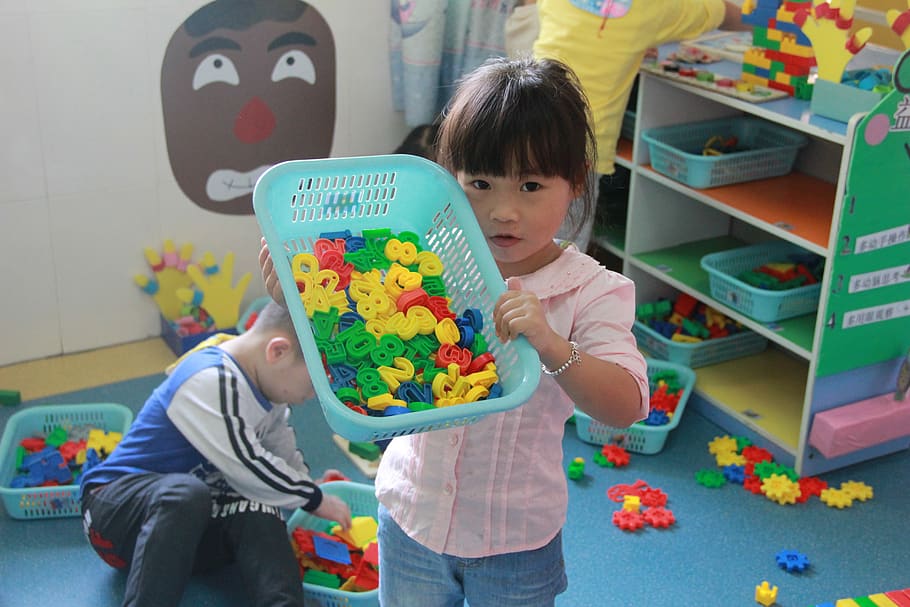Puzzles are an age-old game or toy that tests a person’s knowledge, creativity, imagination and problem solving skills. Right from early childhood to even adulthood, solving puzzles is a great way to exercise your brain and thinking skills. Along with providing endless hours of fun and entertainment, puzzles are also a great tool for learning. Solving puzzles from a young age is important, it helps boost their cognitive and fine motor skills.
And not only these skills, puzzles can also be used to educate your child too. You can help your child learn specific topics like words, math, geography etc with topic-specific puzzles. Still wondering if just playing and solving puzzles is really helpful for a child’s early learning? Here are 5 reasons why you should include puzzles for kids in your child’s early learning.
5 Ways Puzzles Are Beneficial for Kids
Solving puzzles might seem deceptively simple, but it actually teaches kids essential life skills. Here are 5 benefits of including puzzles in your child’s early education.
- Fine motor skills: When you first hand a puzzle to your toddler, you might be worried. They just grab the pieces and try to smoosh them all together without thinking if they fit. Eventually, they’ll figure out how to rotate a puzzle piece, find it’s matching piece and place it correctly to fit. All the reaching out and grabbing, moving puzzle pieces around and manipulating them to fit builds strength in their little hands.
Additionally, it improves their hand-eye coordination too, which will help them fine tune their movements with better fine motor skills. These skills are important for them to use their hands to perform tasks like buttoning their shirt, eating on their own, writing etc.
- Better focus and persistence: Little children usually have a very short attention span. There’s no shortcut or cheats way to solve a puzzle. So as they put the pieces together to finish the puzzle children start focusing better on the task at hand. Additionally, it’ll teach them to persist till the end even if they run into roadblocks. This also helps them learn to use creative ways to solve problems, thus improving their creativity and problem solving skills too.
- Shape and color recognition: One of the most important parts of a child’s early education is learning about different shapes and colors. Puzzles like jigsaw puzzles help children learn about different shapes and colors. They learn about different shapes like the shapes of fruit, vegetables, vehicles, geometric shapes etc. It also increases their spatial awareness skills.
- Increases their knowledge: There are hundreds of different puzzles on different topics. Each of these puzzles are important to increase your child’s topic specific knowledge. For example, alphabet and number puzzles help children learn about the letters of the alphabet and numbers. Crossword puzzles for kids improves a child’s word skills and vocabulary. Rebus puzzles help children think creatively and jigsaw puzzles on maps can improve their geographical knowledge. Puzzles are also great to build a child’s memory.
- Social skills: Along with cognitive skills and motor skills, another important skill that kids need to learn are social skills. When they solve puzzles and play with other children, they learn to share and communicate with each other. They talk to each other about solving puzzles or any disagreements. They learn to strategize and come up with creative ways to finish the puzzle together. This helps them learn teamwork and leadership skills.
Solving a puzzle successfully also gives them a sense of accomplishment and helps build their confidence and self esteem. All of these make for a healthy, well developed individual.
Factors To Consider While Buying Puzzles
But there are several factors you need to consider before you give your child puzzles to solve. Before you start buying puzzles for your child, consider the following:
- Their age, skill level and understanding
- The topic
- The size and shape of the puzzle pieces
- The number of puzzle pieces, and
- The type of puzzle
The bottom line is that puzzles are an important part of a child’s early development and it has several benefits. The skills they learn from solving puzzles will help them as they grow. Additionally, it’s a wonderful opportunity for some parent-child bonding and will help you create happy memories that will last a lifetime. So, puzzles are not just great toys, they’re mediums of learning lessons that last throughout our lives.
Related posts
Recent Posts
- Sustainability Redefined: How Keter Group Brings the Blueprint For Better Living With Lakeside Collection October 30, 2023
- Tradingview: Unleashing the Revolutionary Power of Trading August 28, 2023
- 6 Features That Make Cantilever Racking a Smart Investment August 3, 2023
- Achieve Radiant Skin with French Professional Skin Care Brands July 10, 2023
- Use of technology and products for People with Kidney Stones June 19, 2023
- Uncovering New Opportunities for Your Medical Billing Business May 6, 2023
- 10 Reasons to Invest in Automated Insurance Claims Software May 6, 2023



